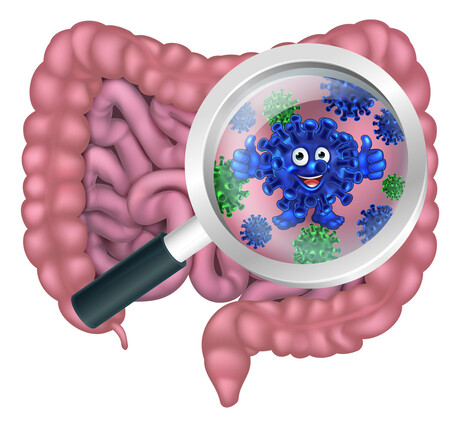Researchers from the UT Southwestern Medical Center have discovered how beneficial bacteria can boost the effectiveness of certain immunotherapy drugs by escaping the intestine, travelling to lymph nodes and cancerous tumors elsewhere in the body. The findings could lead to new cancer treatments. The study suggests that a course of antibiotics, which can eliminate most gut microbes, is detrimental to immune checkpoint inhibitors because the bacteria can no longer play the role of immune accelerant. Previous studies have shown an association between the composition of gut microbiomes and the effectiveness of cancer treatments that target the immune system. However, researchers have reached conflicting conclusions about the ideal balance of microorganisms to optimize therapy. The team is now focused on developing bacterial-based treatments to enhance the efficacy of immune checkpoint inhibitors. According to Andrew Y Koh, “Now we understand that mechanism much better and, in the future, hope to use this knowledge to better fight cancer.”
Healthy Gut Bacteria and Its Impact on Immunotherapy Effectiveness

According to recent research from the UT Southwestern Medical Center, healthy bacteria can have a significant impact on the effectiveness of certain immunotherapy drugs. The research indicates that healthy bacteria can escape the intestine, travel to lymph nodes and cancerous tumors in other parts of the body, and amplify the effectiveness of immunotherapy drugs. The researchers published their findings in the Science Immunology journal, and it could pave the way for new cancer treatments.
Previous studies have established an association between the composition of gut microbiomes and the effectiveness of cancer treatments that target the immune system. These treatments include Keytruda and Yervoy, but researchers had not been able to explain how bacteria inside the gut could affect cancer in other parts of the body.
Andrew Y Koh, who is an associate professor at UTSW, commented that “Now we understand that mechanism much better and, in the future, hope to use this knowledge to better fight cancer.” The research from Koh and his colleagues used mice with melanoma tumors to determine how drugs called immune checkpoint inhibitors affected the movement of gut microbes throughout the body. They found that the drugs, which boost the immune system’s activity against tumors, caused inflammation in the digestive system that leads to the remodelling of lymph nodes in the gut.
Due to these changes, bacteria can leave the intestines and travel to lymph nodes near the tumor and the tumor itself, the researchers found. Here, the microbes activate a set of immune cells that act to kill tumor cells. Koh suggested that “What we think is that these microorganisms and the immune cells they’re activating are essentially pressing on the accelerator of the immune system at the same time.”
However, researchers have reached conflicting conclusions about the ideal balance of microorganisms to optimize therapy, with studies pointing to different beneficial bacteria. This finding suggests that a course of antibiotics, which can eliminate most gut microbes, is detrimental to immune checkpoint inhibitors because the bacteria can no longer play this role of immune accelerant. It also helps explain why researchers have found many types of bacteria in patient microbiomes that seem to be beneficial for treatment.
Overall, this research is promising for the development of new cancer treatments that can utilize healthy gut bacteria to boost the effectiveness of immunotherapy drugs. Further research is needed to determine the ideal balance of microorganisms to maximize therapy, but this finding could lead to significant breakthroughs in cancer treatment.
Boosting Immunotherapy Efficacy with Bacterial-Based Treatments
Researchers from UT Southwestern Medical Center have found that the translocation of a subset of beneficial bacteria from the gut to the lymph node or tumour can significantly impact the efficacy of immune checkpoint inhibitors. This finding suggests that the specific type of bacteria may not matter as much as the fact that the translocation occurs. The team is now focused on developing bacterial-based treatments to enhance the effectiveness of immunotherapy drugs.
Don’t miss interesting posts on Famousbio









